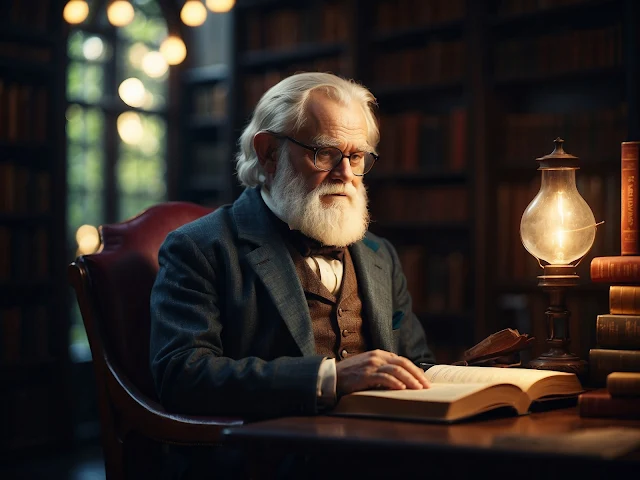Embark on a journey through time as we unravel the captivating legacy of Charles Darwin, a titan of science whose theories reshaped our understanding of the natural world. Darwin's voyage of discovery aboard the HMS Beagle and his groundbreaking work, "On the Origin of Species," mark pivotal moments in scientific history, challenging the very fabric of biological thought and igniting a revolution in our perception of life itself.
The Early Years of a Naturalist
Charles Darwin, born on February 12, 1809, in Shrewsbury, England, showed an early interest in nature and the mysteries of the living world. His curiosity was kindled in the verdant surroundings of his family home, where he first observed the intricacies of flora and fauna. Darwin's academic journey, initially skewed towards medicine at the University of Edinburgh, took a pivotal turn as he veered towards the study of natural history at Cambridge University. This decision was the first step on a path that would lead to revolutionary scientific discoveries.
The Voyage of Discovery
In 1831, Darwin embarked on the HMS Beagle as a naturalist, a journey that would span five years and take him across the globe. From the rugged landscapes of the Galápagos Islands to the rich biodiversity of South America, Darwin meticulously collected specimens and recorded observations that would later form the bedrock of his evolutionary theory. The voyage was more than a scientific expedition; it was a quest for understanding, driven by insatiable curiosity about the natural order of the world.
On the Origin of Species
After years of rigorous analysis and contemplation, Darwin published "On the Origin of Species" in 1859. In it, he proposed the theory of natural selection, suggesting that species evolve over time through a process of hereditary variation and survival of the fittest. This monumental work not only provided a cohesive explanation for the diversity of life on Earth but also challenged the prevailing view of static creationism, sparking widespread debate and gradually transforming the landscape of biological science.
Darwin's Enduring Legacy
Charles Darwin's contributions extend far beyond his time, influencing various fields from genetics to ecology, and even reaching into philosophy and social sciences. His legacy is a testament to the power of observation, critical thinking, and the courage to challenge established norms. Darwin's work laid the foundation for modern biology and continues to inspire generations of scientists and thinkers worldwide.
Fun Facts about Charles DarwinThe Reluctant Revolutionary: Despite his groundbreaking discoveries, Darwin delayed the publication of his theory for almost two decades, apprehensive about the uproar it might cause in the scientific and religious communities.A Passion for Earthworms: Darwin's curiosity knew no bounds. One of his lesser-known studies involved earthworms, leading to the publication of "The Formation of Vegetable Mould through the Action of Worms." He believed that these humble creatures played a significant role in the natural process of soil formation.The Galápagos Legacy: Darwin's visit to the Galápagos Islands was pivotal in shaping his theory of natural selection. Interestingly, he initially failed to recognize the full significance of the islands' unique species, only later understanding their role in the puzzle of evolutionary adaptation.
Charles Darwin's legacy is a beacon of intellectual bravery and scientific inquiry. His theories not only revolutionized our understanding of life's diversity but also emphasized the interconnectedness of all living beings. As we continue to explore the vast and intricate tapestry of life, Darwin's insights serve as guiding stars, illuminating the paths of curiosity and discovery. His life and work remind us that in the grand narrative of evolution, we are all participants, woven into the ever-evolving story of life on Earth.

